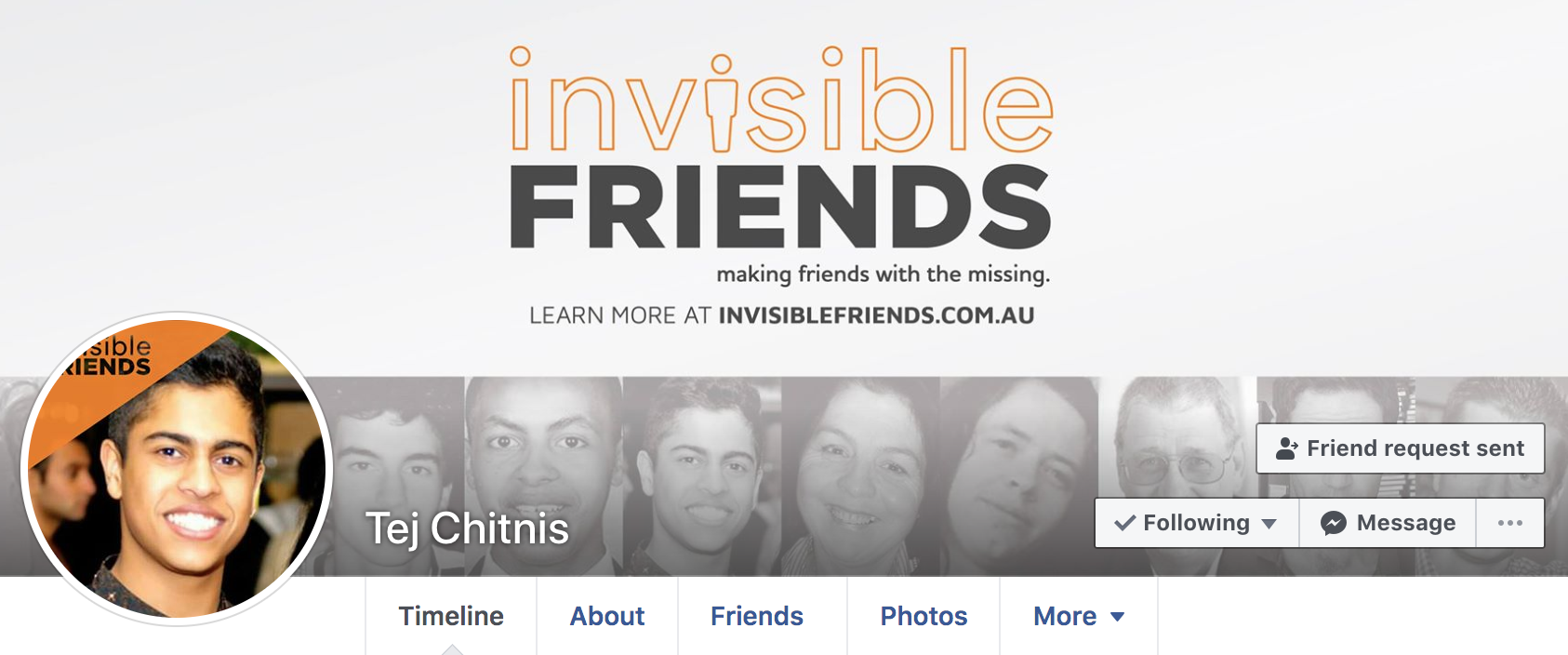Buying a coffee and scrolling through Facebook are among the most mundane of daily tasks, but they could be the answer to solving Australia’s coldest missing persons cases.
The Missing Persons Advocacy Network was created by Loren O’Keeffe after her brother Dan went missing in 2011. His body was found at the family property four years later.
Since then, Ms O’Keeffe has devoted her time to developing a platform that provides support for families and relatives of missing people, and has written a practical guide detailing what to do if someone you know disappears.
“I’m working to humanise missing people,” she said, “and alleviate the financial, psychological and emotional burden on their families and friends.”
Invisible Friends encourages Facebook users to add profiles of missing people to their friends list and use the social media site’s facial recognition system to digitally recognise missing people.
A notification is then sent to the Missing Persons Advocacy Network (MPAN) if a match is found.
More than 300 million photos are posted to Facebook daily and the website’s facial recognition system is said to be 98 per cent accurate. The FBI’s own software sits at 85 per cent.
MPAN is also relaunching The Unmissables initiative, which distributes 100,000 coffee cups decorated with the details and artworks of missing people to over 20 cafes across Australia for this year’s National Missing Persons Week, which ends on Saturday (August 9).

This year’s campaign will feature eight cases, including Tej Chitnis, who was reported missing in 2016 after failing to show up for his father’s birthday celebration.
Over 100 people are reported missing every day in Australia, and while most are typically found alive within a few days, there are currently 2,000 people on the long-term missing people list.
Much of Ms O’Keefe’s work is focused on removing the association with missing persons and crime. Instead, she hopes to reframe it as a community issue, and encourages a collaborative approach across media, corporate, government, emergency services and the public.
Research suggests that when one person goes missing, at least 12 other people are impacted emotionally, psychologically and financially by their disappearance.
Ms O’Keeffe hopes to grow MPAN into an organisation that can provide “adequate support across the board for every Australian family living with ambiguous loss”.


